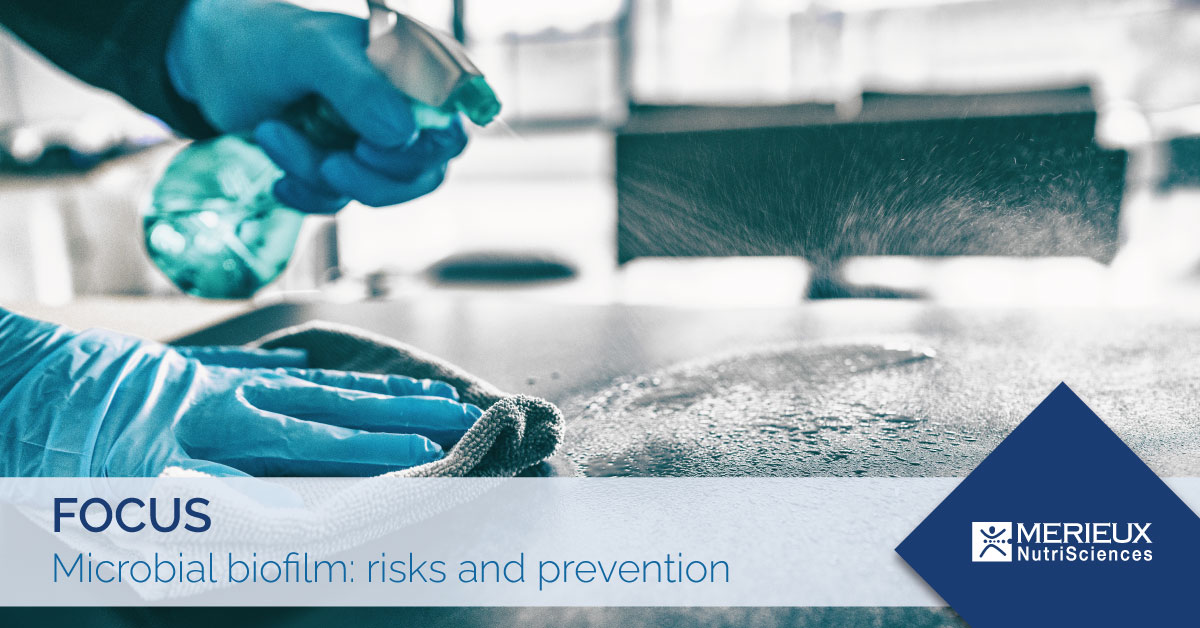MICROBIAL BIOFILM: RISKS AND PREVENTION

A microbial biofilm is a complex community of microorganisms immersed in a polysaccharide matrix secreted by the cells themselves. It is a biologically active structure that can adhere to biotic and abiotic surfaces, allowing microorganisms to trap nutrients and water, to multiply undisturbed and to survive even in adverse conditions.
RISKS INVOLVED
The formation of biofilm is a frequent risk for the agri-food industry as it can occur on all surfaces in contact with food such as tables, work tools, packaging materials, production machinery, etc. that have not been properly sanitized from the organic production residues leading to some serious consequences such as:
- uncontrollable contamination of food by pathogenic microorganisms responsible for numerous food-borne diseases. (Listeria monocytogenes, Salmonella spp., Pseudomonas spp. Escherichia coli and Campylobacter jeuni)
- huge economic losses due to non-compliant food production
- a considerable cost due to extraordinary sanitation procedures of the environments
- serious damage to the mechanics of the entire system (bio-corrosion, blockage, obstruction)
HOW TO PREVENT IT
In order to protect itself from these risks, it is essential for the agri-food industry to counteract the formation of microbial biofilms by implementing a concrete prevention and control strategy based on some fundamental actions such as:
- use biofilm research and monitoring systems that detect their presence in real time (analytical kits, biosensors etc.) in order to be able to intervene at any time with appropriate corrective actions
- use equipment and processing plants that are isolated from sources of external contamination and that have a linear structure that can be easily sanitized
- carry out periodic treatments of extraordinary sanitization of systems and environments
- develop an effective and efficient broad-spectrum sanitation protocol
- adequately train the personnel assigned to cleaning operations
- meet with industry experts in order to identify appropriate guidelines to counter the problem
The presence of biofilms in the food industry can heavily affect industrial technologies and productivity success, as well as having serious repercussions on public health.
Preventing its formation represents a great opportunity for the agri-food industry as in addition to preserving the efficiency of the plant, food production is better from an organoleptic point of view and safer from a microbiological point of view. All this translates into significant economic savings linked to the risk of non-compliance and greater consensus from consumers.

